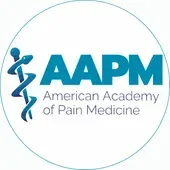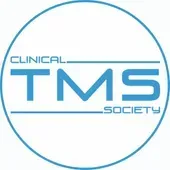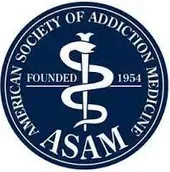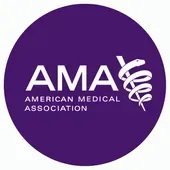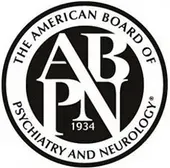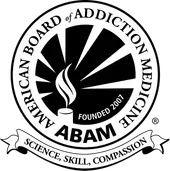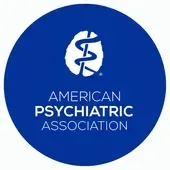TMS FAQs
Frequently Asked Questions
Explore our FAQ to learn about Transcranial Magnetic Stimulation (TMS) offered by Wave Treatment Centers, where Dr. Jonathan Beatty and his team utilize this innovative, non-invasive treatment to enhance mental health. This resource covers a variety of topics, including the procedure's benefits, eligibility, and safety information. If your question isn't listed here, please don't hesitate to call us at (215) 242-0420 for more information. We're here to assist you in understanding how TMS might be right for you.
What Is TMS?
Transcranial Magnetic Stimulation (TMS) is a non-invasive procedure that uses magnetic fields to stimulate nerve cells in the brain to improve symptoms of depression. Wave Treatment Centers, led by Dr. Jonathan Beatty, offers TMS as part of its comprehensive mental health treatment services.
What Is the History of TMS Treatment?
TMS has been researched for decades, with significant advancements in the 1980s leading to its eventual FDA clearance for depression in 2008.
How Does Deep TMS Work?
Deep TMS penetrates more deeply into the brain to target broader areas associated with mood regulation. This method can reach areas of the brain that are underactive in conditions like depression.
Who Is Eligible for TMS Treatment?
Individuals suffering from depression who have not responded to traditional treatments may be eligible. Dr. Jonathan Beatty and the team at Wave Treatment Centers, with offices in Chestnut Hill and Philadelphia, can assess eligibility during a consultation.
What Are the Benefits of TMS?
Benefits include a significant reduction in depression symptoms, non-invasiveness, and minimal side effects. It's a valuable option for those who haven't found relief through medication or therapy alone.
Does TMS Hurt?
Most patients experience TMS as a tapping sensation on the scalp and do not find it painful.
Are There Any Side Effects with TMS?
Common side effects are generally mild and may include headache, scalp discomfort, and lightheadedness. Serious side effects are rare.
Does TMS Cause Brain Tumors?
There is no evidence to suggest that TMS causes brain tumors. It's considered a safe treatment option with an excellent safety profile.
What Are the Long-Term Consequences of TMS Treatment?
Long-term consequences are generally positive, with many patients experiencing lasting relief from depression symptoms. Research is ongoing to better understand the long-term effects.
Is TMS Safe?
Yes, TMS is safe and has been FDA-approved for the treatment of depression. The team at Wave Treatment Centers ensures the highest safety standards during treatment.
How Long Does Treatment Take?
A typical TMS course involves daily sessions for 4-6 weeks, with each session lasting around 30-60 minutes.
Is TMS Better Than Antidepressants?
For some, TMS may be more effective or a preferred option, especially if antidepressants haven't worked or cause intolerable side effects.
Will TMS Affect My Current Medications?
TMS does not typically interfere with medications, but it's essential to discuss your current medications with the treatment team at Wave Treatment Centers.
Who Benefits Most from TMS?
Individuals with treatment-resistant depression, or those who cannot tolerate the side effects of antidepressants, often benefit the most from TMS.
Who is a Good Candidate for TMS?
A good candidate for TMS has not seen significant improvement with traditional depression treatments. A consultation at Wave Treatment Centers can help determine candidacy.
What Should I Expect For My First Visit?
Your first visit will likely involve a detailed evaluation of your mental health history, a discussion of TMS, and an assessment to determine if TMS is right for you.
Is TMS a Good Option for Those Who Cannot Tolerate Medication Side Effects?
Yes, TMS is an excellent alternative for those who cannot tolerate the side effects of medications, offering a different approach to treating depression.
Is TMS Therapy Like Other Alternative Therapies Which Use Magnets to Treat Some Illnesses?
TMS uses focused magnetic impulses, differing from other magnet-based therapies in its targeted approach and scientific backing for treating mental health conditions.
Is TMS Therapy Like Electroconvulsive Therapy (ECT)?
TMS and ECT differ significantly. TMS is non-invasive and does not require anesthesia or induce seizures, making it a less intense treatment option than ECT.
What Is the Difference Between rTMS and dTMS?
rTMS (Repetitive Transcranial Magnetic Stimulation) targets specific brain areas with magnetic pulses, while dTMS (Deep Transcranial Magnetic Stimulation) reaches deeper brain areas, potentially affecting broader brain networks.
Does TMS Cause Memory Loss?
TMS does not typically cause memory loss. Some patients report improvements in concentration and memory following treatment.
What Do I Do Once My TMS Treatment Is Completed?
Post-treatment, you'll have follow-up assessments to monitor your progress. Some may require maintenance sessions, which the team at Wave Treatment Centers can discuss with you.
Is TMS Used to Treat Anything Besides Depression and OCD?
TMS is currently being researched for its efficacy in treating a variety of other mental health conditions, including anxiety, bipolar disorder, memory loss, though its primary FDA approvals are for depression and OCD.
Will Doing TMS Mean I Won’t Have to Take Medication Ever Again?
While TMS can significantly reduce or eliminate the need for medication for some, it's not guaranteed for everyone. Ongoing assessment is essential.
How Long Does the Antidepressant Effect Last? Will I Need Any Therapy Beyond the First 6 Weeks?
The duration of TMS benefits varies. Some may require "maintenance" sessions. Wave Treatment Centers offers individualized post-treatment plans to maintain mental health gains.
Is TMS Therapy System Cleared by the FDA?
Yes, TMS therapy is FDA-cleared for the treatment of depression and OCD, reflecting its safety and efficacy for these conditions.
Is Brain Imaging Necessary for TMS Therapy for Depression?
Brain imaging is not typically required for TMS therapy; treatment parameters are based on standardized positioning protocols and individual patient assessments.
What Evidence Exists for Deep TMS Effectiveness?
Numerous studies and clinical trials have demonstrated the effectiveness of Deep TMS in treating depression, with many patients experiencing significant symptom relief. Wave Treatment Centers utilizes the latest research and technology to provide effective treatment options.





